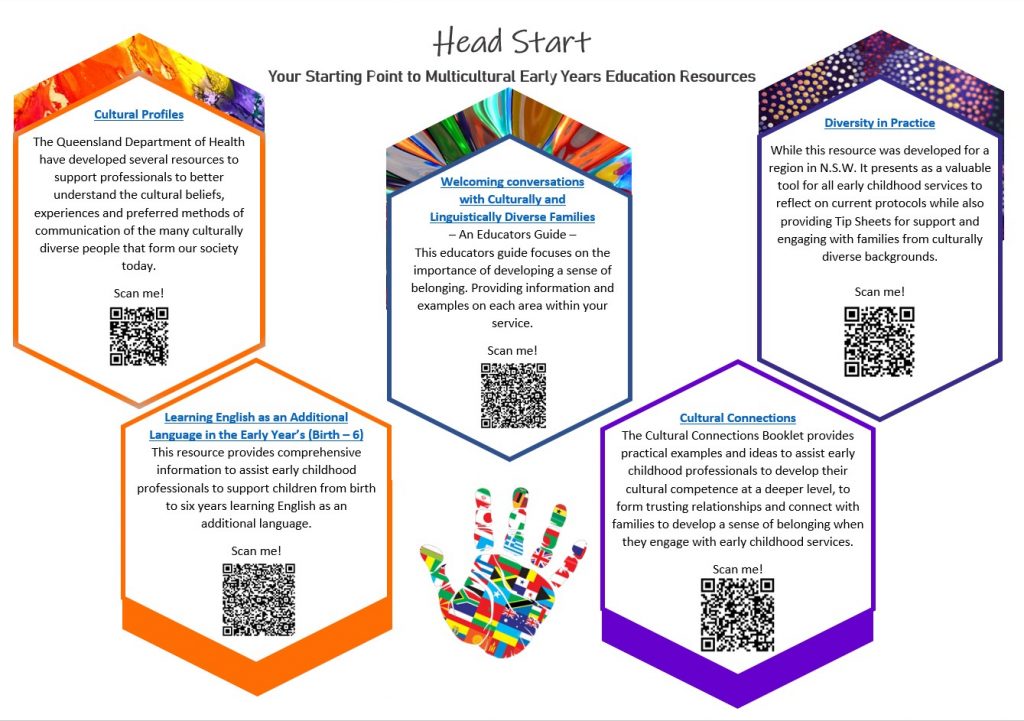20 Shareable resources
Tracey Mason
This digital resource aims to support early childhood professionals to develop their knowledge and understanding of our multicultural society, including links to supporting materials that outline practices and protocols that can be adopted to foster positive and trusting relationships between educators, children and families. The resource can be used both in print or digital form with embedded links and QR codes to provide access to each document promptly.
The purpose of the Head Start resource is to provide a shareable document specific to multicultural early years education. The Early Years Learning Framework suggests that families are the first and most influential educators in a child’s life, highlighting the importance of fostering relationships with children and their families to develop a sense of belonging (DEEWR, 2009). For children and families where English is an additional language, communication can present a barrier to engagement and participation. Fellowes and Oakley (2019) also highlight the importance of developing a child’s strong sense of identity and belonging, suggesting that where possible children should be able to use their home language.
Educators can facilitate and build positive partnerships with children and families through developing their own professional knowledge of the diverse cultures accessing their learning environment. The links provided in the Head Start resource scaffold educators to source and locate relevant information specific to the cultural beliefs, values and knowledge systems that impact the learning of the children in their care (DEEWR, 2009). For example, educators could engage with the Welcoming Conversations Guide, as a reflection tool focusing on the enrolment processes, the environment and the planning and delivery of a culturally sensitive curriculum. This reflection process will highlight professional learning opportunities and identify areas for continuous improvement across the practices and procedures within their service (Child Australia, 2012).
Links
Early Years Learning Framework (DEEWR, 2009)
- Outcome 1: Children have a strong sense of identity
National Quality Standard (ACECQA, 2018)
- Quality Area 6 – Collaborative partnerships with families and communities


